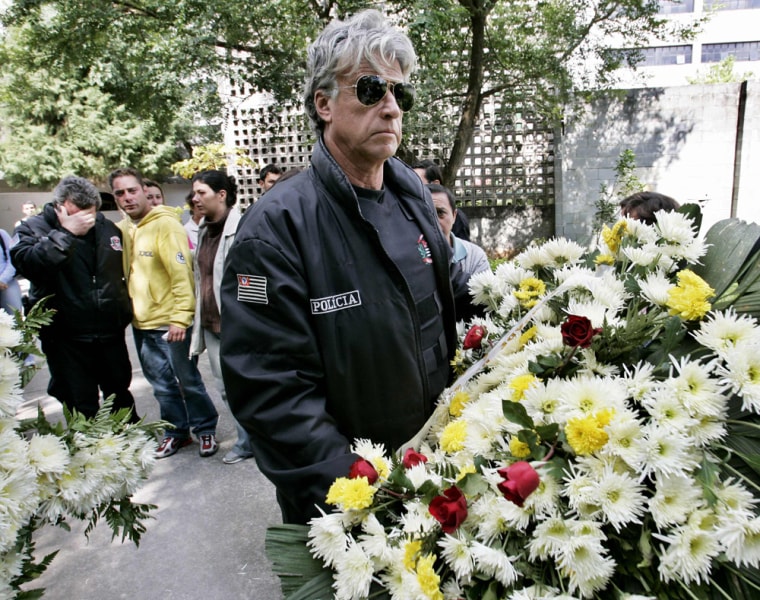One of Brazil’s most notorious gangs staged dozens of attacks on police before dawn Saturday, setting off gunbattles in three cities that killed at least 30 people, officials said. Twenty-four prison uprisings also were reported across Sao Paulo state.
It was the worst assault on authority since gangsters armed with machine guns, bombs and other weapons attacked police stations in Sao Paulo city over a 10-day stretch of November 2003. That spree also was blamed on the gang First Capital Command, which is known by its Portuguese initials, PCC.
The attacks that began late Friday “were obviously the work of the PCC,” said Enio Lucciola, press spokesman for the Sao Paulo State Public Safety Department.
“It is trying to undermine our authority and intimidate us and the population at large at a time when we have redoubled our efforts to destroy the organization,” Lucciola said by telephone.
Dozens of attacks
Public Safety Secretary Saulo de Castro Abreu said police stations, patrol cars and bars frequented by off-duty officers were attacked in Sao Paulo and three suburbs. Stations in the coastal cities of Cubatao and Guaruja, 50 miles to the southeast, also were attacked.
Abreu said there were 55 separate attacks that killed at least 23 policemen, the girlfriend of one officer, a passer-by, and five or six suspected gang members. Thirty-two people — 15 policemen, 15 attackers and two passers-by — were wounded, he said. At least 16 people were arrested.
He said the PCC was trying to intimidate police and government officials as well as retaliate for several of the gang’s jailed leaders being put into solitary confinement, which is one of the ways officials use to break the chain of command with gang members outside the prison.
Nagashi Furukawa, the Sao Paulo State prison affairs secretary said that the PCC also apparently orchestrated rebellions in 24 of the state’s 144 prisons, adding “most of these uprisings are minor, and none of the facilities have been destroyed.”
Hours later, Furukawa’s office said in a statement that six uprisings had ended and that inmates in the other 18 prisons were holding some 96 hostages. Further details were not immediately available.
“As far as we can tell none of the hostages has been hurt or seriously threatened, which is why we are considering these uprisings as minor,” he said.
Police: Group traffics drugs, guns
PCC was founded in 1993 by prisoners at the Taubate Penitentiary in Sao Paulo. Authorities say it is involved in drug and arms trafficking, kidnappings and bank robberies.
One uprising that PCC allegedly organized at a prison in February 2001 spread to 28 other jails across Sao Paulo state, causing violence that ended in the deaths of 19 inmates.
In the November 2003 attacks, officials say the gang was trying to pressure authorities to improve conditions at the prisons where the leaders were being held.
The attacks that month killed three police officers. Two suspected gang members also died.
